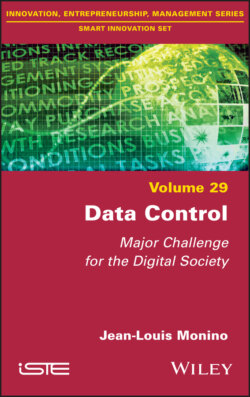Читать книгу Data Control - Jean-Louis Monino - Страница 12
1.1. Background on economic intelligence
ОглавлениеIn the United States, it was the work of academics in the 1960s that revealed the importance and necessity of conceiving economic intelligence as a branch of the economy. Harold Wilensky's book “Organizational Intelligence” - 1967. It defines business intelligence as the activity of producing knowledge serving the economic and strategic goals of an organization, collected and produced in a legal context and from open sources.
Stevan Dedijer in the late 1960s conceptualized “intelligence” as an economic matter, and gave a broad definition: “Intelligence is the information itself, and its processing, and the organization that deals with it, while it obtains, evaluates and uses it under more or less secret, competitive or cooperative conditions, for the purposes of conducting any social system and about the nature, capacities, intentions, actual or potential operations, of internal or external opponents.”
Klaus Knorr was one of the first to advocate a wide dissemination of Business Intelligence, starting from the university space; for him it is “the operation to obtain and process information about the external environment in which an organization wants to maximize the achievement of its different goals”. Business intelligence is becoming a major component of corporate strategy and is based on information that is the foundation of any decision-making process. Information as such had received a fundamental scientific treatment without which economic intelligence could not have developed.
In France, the contribution of a group of experts from the Commissariat Général du Plan was published in 1994 under the name of the Martre Report. This work on the “Economic Intelligence and Company Strategy” proposes a definition in the introduction to the report: “Economic intelligence can be defined as all the coordinated actions of research, processing and distribution, with a view to its exploitation, of information useful to economic players. These various actions are carried out legally with all the necessary guarantees of protection to preserve the company's assets, in the best conditions of quality, time and cost. Useful information is that which is needed by the various levels of decision-making in the company or community to develop and consistently implement the strategy and tactics necessary to achieve the objectives defined by the company in
order to improve its position in its competitive environment. These actions, within the company, are organized in an uninterrupted cycle, generating a shared vision of the objectives to be achieved ”
